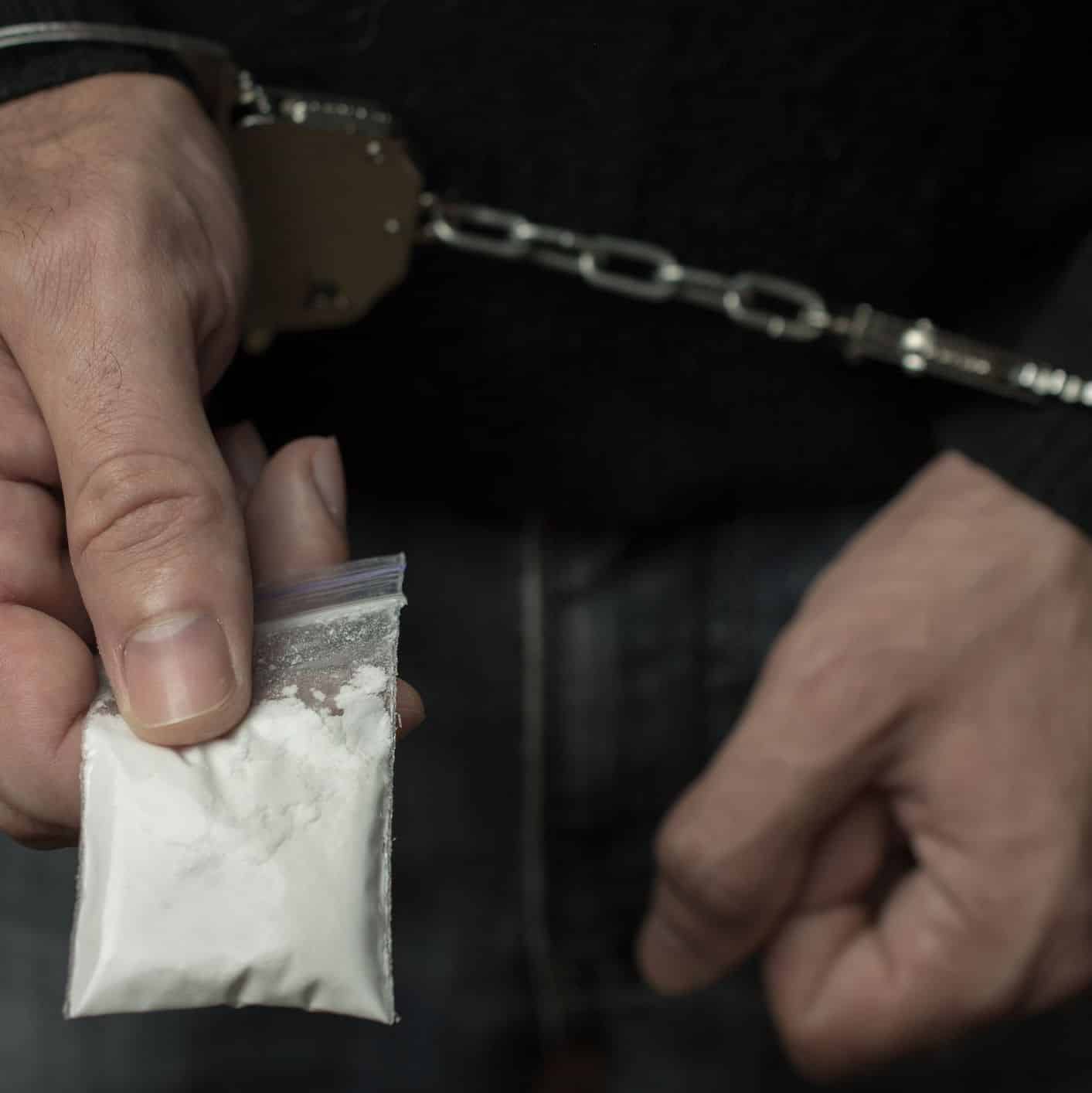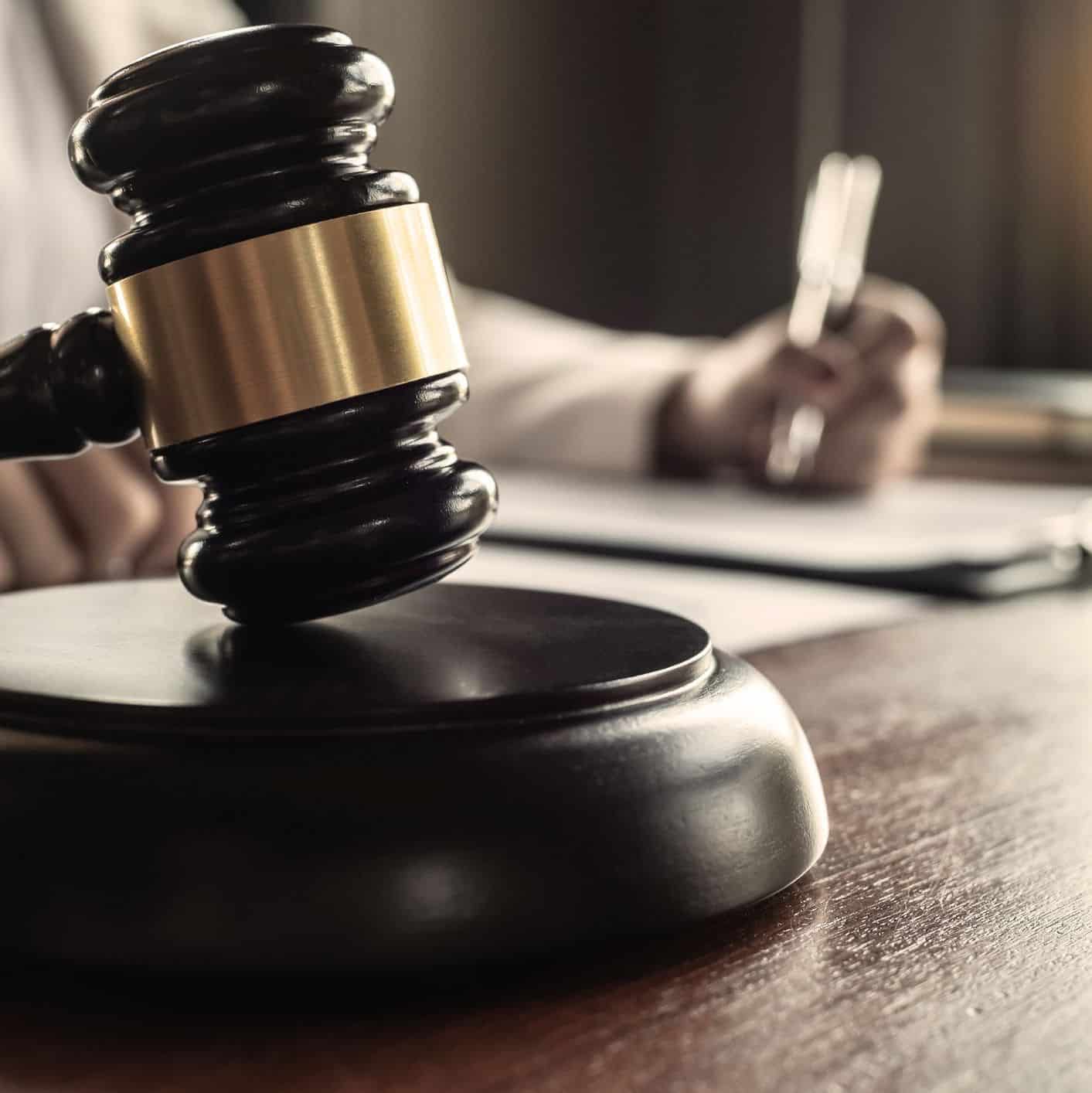When your freedom is in jeopardy due to accusations of drug possession under HS 11350 or HS 11377, you must take action immediately to avoid conviction. Contact Gressley & Donaldson to discuss your legal options with a dedicated criminal defense attorney today.
In California, accusations of drug possession are charged under several types of statutes. In particular, the California Health & Safety Code, which contains statutes covering the various subject areas of health and safety in the state, makes it a crime to possess controlled substances and methamphetamine under HS 11350 and HS 11377.
The criminal justice system in California treats all drug possession crimes very seriously, which is why the potential penalties associated with such drug offenses can be harsh and carry far-reaching consequences. When facing criminal charges under HS 11350 or HS 11377, you may require immediate intervention by a defense lawyer who will work tirelessly to get your drug charges dropped or reduced.
At Gressley & Donaldson, we are well-versed in the complexities of drug possession HS 11350 & HS 11377 charges and strive to help our clients avoid jail time and minimize the negative impact of these charges on their lives. Our lawyers are tenacious in protecting the rights, freedom, and reputation of those who have been accused of or charged with drug possession.
How Does California Define Drug Possession HS 11350 & HS 11377?
Health & Safety Code 11350 makes it a crime to have a drug that has a potential for abuse (also referred to as a “controlled substance”) under your control when you do not have a valid prescription. HS 11350 is one of the most frequently-charged drug-related crimes in the state of California.
Health & Safety Code 11377 prohibits the possession of methamphetamine – generally referred to as “meth” – without a valid prescription. Methamphetamine is a highly addictive stimulant that has various effects on the central nervous system. While HS 11350 and HS 11377 prohibit possession of controlled substances, the Health & Safety Code also contains other statutes that make it illegal to sell, distribute, transport, and manufacture illicit drugs.

The Elements of the Drug Possession Crime
The government has the burden to prove beyond a reasonable doubt the following four elements to secure a conviction for drug possession HS 11350 & HS 11377 charges:
- Possession. The defendant unlawfully possessed the controlled substance in question. California law recognizes three types of “possession”: actual when you have the drug on your person or have immediate access to it, constructive when the drug is not in your direct physical control but you have the ability to maintain dominion and control over it, and joint when you share either actual or constriction possession with other people.
- Knowledge. To convict you for violating HS 11350 and HS 11377, the government must prove you had knowledge of both (a) the presence of the controlled substance and (b) the fact that the substance is an illicit narcotic. The prosecution is not required to prove that you knew that you had a specific controlled substance, only that you had some type of illegal drug.
- Illegal substance. The controlled substance in question must be a narcotic prohibited by the state or federal law to be guilty of drug possession. According to the U.S. Drug Enforcement Administration, the federal law divides controlled substances into five categories – or “schedules” – based on their potential for abuse and medical value.
- Usable amount. Finally, the prosecution must prove that there was a usable quantity of the drug in your possession. The amount is “usable” when the found substance’s quantity or strength is enough to be used as a drug to intoxicate you. Traces or debris of the drug may not be seen as “usable” amounts.
If any of these four elements are not proven beyond a reasonable doubt, the defendant will generally be found not guilty. As your legal counsel, our team at Gressley & Donaldson can help you challenge the prosecutor’s case against you and cast doubt on their ability to prove the crime to help you avoid a conviction for drug possession or, at the very least, get the charges reduced to a lesser offense.
Penalties for Possessing a Controlled Substance
After California voters passed Proposition 47, most drug possession charges, including HS 11350 and HS 11377, have been punished as misdemeanor offenses. Before the legislation went into effect on November 14, 2014, these charges had been straight felonies under California law.
Upon conviction, the punishment for possessing a controlled substance includes:
- Up to $1,000 in fines; and/or
- A maximum one-year sentence in county jail.
A second and subsequent conviction of drug possession HS 11350 can lead to enhanced penalties: up to $2,000 in fines and/or a maximum two-year sentence in jail. Under certain circumstances, drug possession HS 11350 & HS 11377 charges can be prosecuted as felonies:
- HS 11350 can be elevated to a felony if the defendant has a prior conviction for a serious felony such as a sex crime, gross vehicular manslaughter while intoxicated, and others; and
- HS 11377 can become a felony if the defendant has prior convictions for either a crime that subjects them to register as a sex offender or any serious felonies, including murder.
In California, felony convictions are punished by up to three years in county jail and a maximum $10,000 fine among other serious and far-reaching penalties.
Deferred Entry of Judgment
First-time drug offenders in California have an opportunity to dismiss their criminal case entirely if they meet certain requirements. This is known as the deferred entry of judgment or “DEJ” in the state and is governed by California Penal Code § 1000. Under this program, eligible individuals can obtain professional treatment and education instead of serving jail time if the following criteria are met:
- There was no violence involved in the drug crime
- The defendant has no prior convictions related to controlled substances
- There is no evidence that the defendant possessed the drugs for sale
- The defendant has no history of violating probation or parole
- The defendant has had no DEJ for other crimes in the past five years
- The defendant has not been convicted of felonies in the past five years
The most prominent benefit of deferred entry of judgment is that, once the defendant’s case is dismissed, they will have no record of conviction. If you or someone you love is facing drug possession charges under statutes HS 11350 or HS 11377, contact our lawyers at Gressley & Donaldson to discuss the possible options available to mitigate the punishment or pursue alternative sentencing options.

What Are the Defenses to Possession of a Controlled Substance?
Being charged with drug possession HS 11350 & HS 11377 can be a daunting and anxiety-inducing experience, especially when you are unsure of the defenses available to you. Our law firm has successfully defended numerous clients using the following defense strategies:
- Lack of possession. You did not have the controlled substances on your person and exercised no dominion or control over the drug (e.g., you were a guest in the house where drugs were found).
- Lack of knowledge of the drug’s presence. You did not know you were in possession of the drug that was found in your possession (e.g., you borrowed a friend’s car that contains drugs).
- Lack of knowledge of the drug’s nature and character. You did not know the substance was an illicit narcotic (e.g., someone gave you the substance but did not explain that it was an illegal drug).
- Valid prescription. You have a valid prescription for the controlled substance (e.g., many opioids are illegal narcotics but are still legally available as prescription drugs).
- The substance is not an illegal narcotic. You possessed the substance that was not found to be an illicit narcotic after undergoing testing by law enforcement criminalists (e.g., the police found a pill in your pocket but had no evidence that it was a controlled substance).
- Lack of a usable amount. The quantity of the drug found in your possession does not constitute a “usable” amount (e.g., the police found unusable traces or debris of the substance).
- Illegal search and seizure. The controlled substance was found when you were subject to an unreasonable search and seizure in violation of your Fourth Amendment right (e.g., the drugs were found in your car during an illegal traffic stop).
- Miranda rights violation. The law enforcement violated your Fifth Amendment right because they did not read you your Miranda rights before subjecting you to custodian interrogation (e.g., you were not read your Miranda rights before the interrogation and admitted your guilt).
- False accusation. Someone falsely accused you of the crime and planted the drugs on your person or anywhere you had reasonable access to (e.g., a business competitor planted the drugs in your office and called the police to get you arrested).
- Entrapment. You were induced by law enforcement to commit the crime by undue persuasion, incitement, or deceitful means (e.g., a police officer went undercover and made you buy drugs by using undue persuasion).
Everyone’s situation is unique. Whether or not any of the above-mentioned legal defenses could potentially work in your case depends on the details of your situation. That’s why it’s a good idea to discuss your situation with an experienced defense attorney who can develop a defense strategy tailored to your specific circumstances.
Is It Possible to Appeal a Drug Possession Conviction in California?
Yes, if you were convicted of drug possession, you have the right to appeal your conviction or an unduly harsh sentence 30 days after a misdemeanor judgment and 60 days after a felony judgment. After the defendant files a Notice to Appeal, the case will be reviewed by a higher court. However, an appeal is not a “re-trial.” The higher court will merely determine whether the trial court made any errors. The appeals process in California consists of the following steps:
- The defendant (known as the appellant in this process) or their lawyer files a Notice to Appeal.
- The appellant files the requested records to the appellate court.
- The appellant prepares the written argument in which they explain what errors were made.
- The appellant makes oral arguments to the appellate court.
- The appellant waits for the appellate court’s decision.
The appeals process has several critical deadlines and procedural requirements that must be met. Failure to meet any of those deadlines or requirements could result in the denial of your request for an appeal. If you are considering appealing your drug possession conviction, you might want to get help from a lawyer. With a lawyer, you can learn more about your options to overturn your conviction or reduce the severity of the imposed punishment and help you navigate the appeals process from start to finish.
Drug Possession Frequently Asked Questions
If you or someone you care about has been arrested for possession of drugs under HS 11350 & HS 11377 charges, you probably have many questions. The section below provides answers to some of the most frequently asked questions our team at Gressley & Donaldson receives. If you need further guidance, schedule a personalized consultation with our drug possession defense lawyer.
Drug possession in California refers to having illegal drugs, controlled substances, or certain prescription medications without a valid prescription.
Penalties vary by substance and quantity, including fines, probation, mandatory drug programs, and potential jail or prison time.
First-time offenders may face reduced penalties, diversion programs, probation, fines, or mandatory drug education courses.
Defenses against drug possession charges in Riverside include illegal search and seizure, lack of knowledge of the drug, improper evidence handling, and challenging chain of custody.
Possessing prescription drugs without a valid prescription, or in excess of prescribed amounts, can result in misdemeanor or felony charges depending on circumstances.
Evidence may include drugs found during lawful searches, chemical testing, police reports, and witness statements. Proper handling is critical for admissibility.
Probation may include supervised reporting, drug testing, counseling, community service, and restrictions on travel or possession of controlled substances.
Yes. Certain first-time offenders may qualify for diversion or rehabilitation programs that can lead to dismissal of charges upon successful completion.
Misdemeanor possession generally involves smaller amounts and carries lighter penalties, while felony possession may involve larger amounts, prior convictions, or intent to distribute.
Yes. Through plea bargaining, evidence challenges, or diversion programs, charges can sometimes be reduced from felony to misdemeanor or dismissed.
If drugs were obtained through an illegal search or seizure, a defense attorney can file a motion to suppress evidence, which may lead to dismissal.
Yes. Juveniles may face similar charges, often handled in juvenile court with emphasis on rehabilitation rather than incarceration.
An Riverside drug possession attorney can challenge evidence, negotiate plea deals, advise on diversion eligibility, and represent you in court to minimize penalties.
Consequences may include criminal record, employment restrictions, limitations on professional licenses, immigration issues, and difficulty obtaining housing or loans.
Gressley & Donaldson: Skilled Riverside Drug Possession Defense Lawyer
When facing drug possession HS 11350 & HS 11377 charges, your first course of action should be to contact a Riverside drug possession lawyer and discuss your situation in depth. After all, your freedom, reputation, and future are at stake right now. At Gressley & Donaldson, we understand that there is nothing more frightening than being arrested and not knowing what happens next.
Our law firm sets itself apart from other criminal defense firms in the level of professionalism and dedication we offer when representing clients. We are committed to defending every client vigorously and helping them achieve the most favorable outcome possible. Reach out today to schedule a case review with our lawyers.


